Blister Sedge, Inflated Sedge, Small Inflated Sedge
Carex vesicaria var. vesicaria
Synonym: Carex inflata, Carex vesicaria
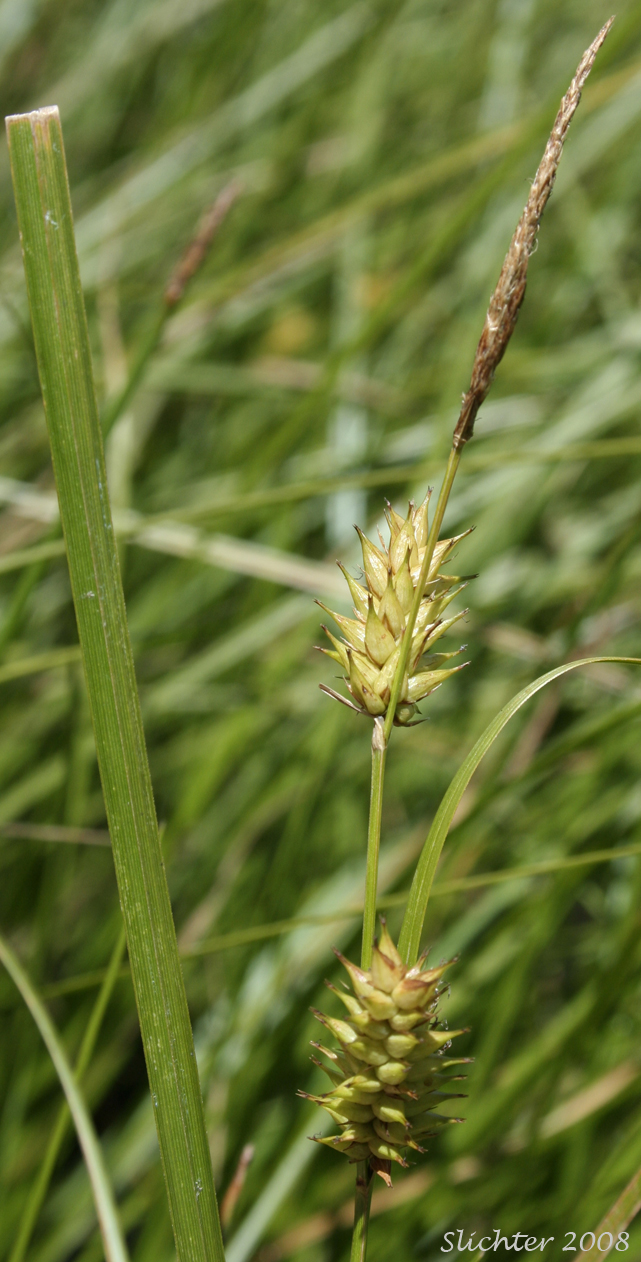
The photo above shows the male (upper) and 2 female spikes (lower) of inflated sedge as seen in a vernal riparian area in the public hunting area to the west of Lakeside Road in Conboy Lake NWR to the southeast of Mt. Adams.........July 16, 2008. The habitat of this sedge is at the edge of the large lake that forms in this area during the late winter and early spring (probably no more than a foot deep at this site at that time) and dries up by early June.
 -
- 
Blister sedge, a dominant species of wet meadows around an old reservoir about one mile uphill to the southeast from Oliver Lake, Umatilla National Wildlife Refuge........July 28, 2013.
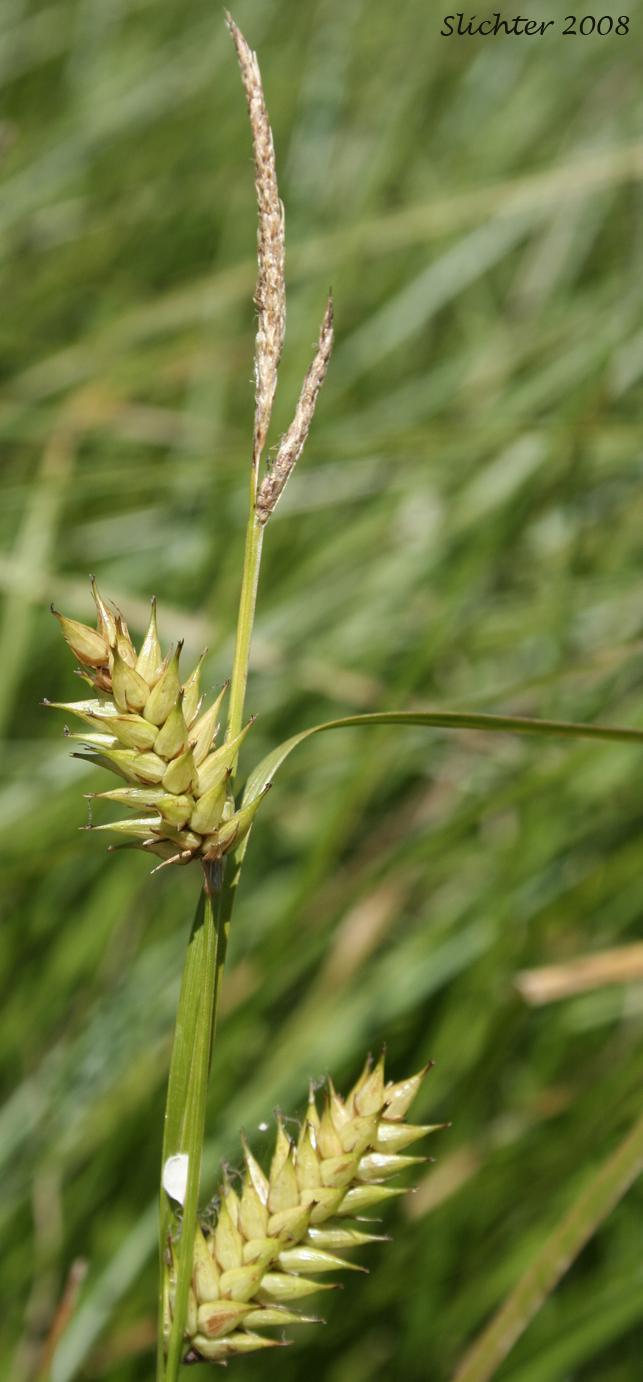
The photo above shows another view of the male (upper) and 2 female spikes (lower) of inflated sedge as seen in a vernal riparian area in the public hunting area to the west of Lakeside Road in Conboy Lake NWR to the southeast of Mt. Adams.........July 16, 2008.
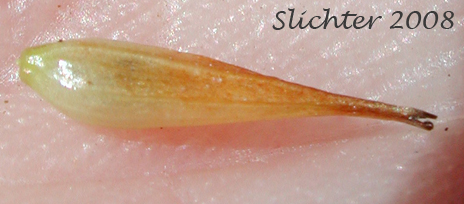 -
- 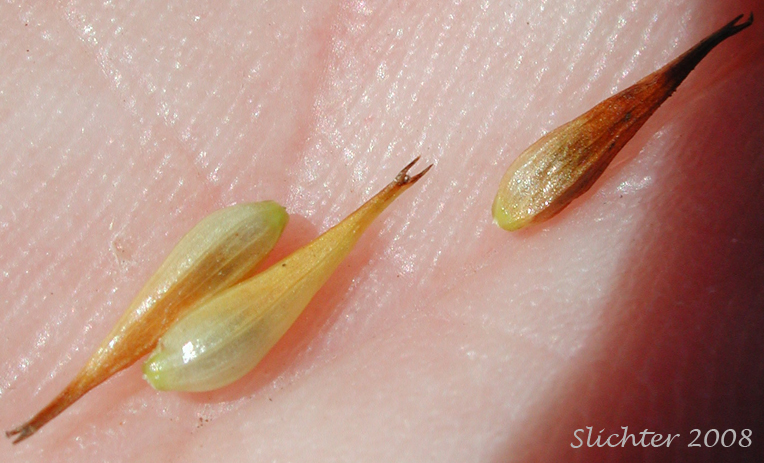
The two photos above show close-ups of the perigynia of inflated sedge as seen along Kreps Lane in Conboy Lake NWR........July 31, 2008.
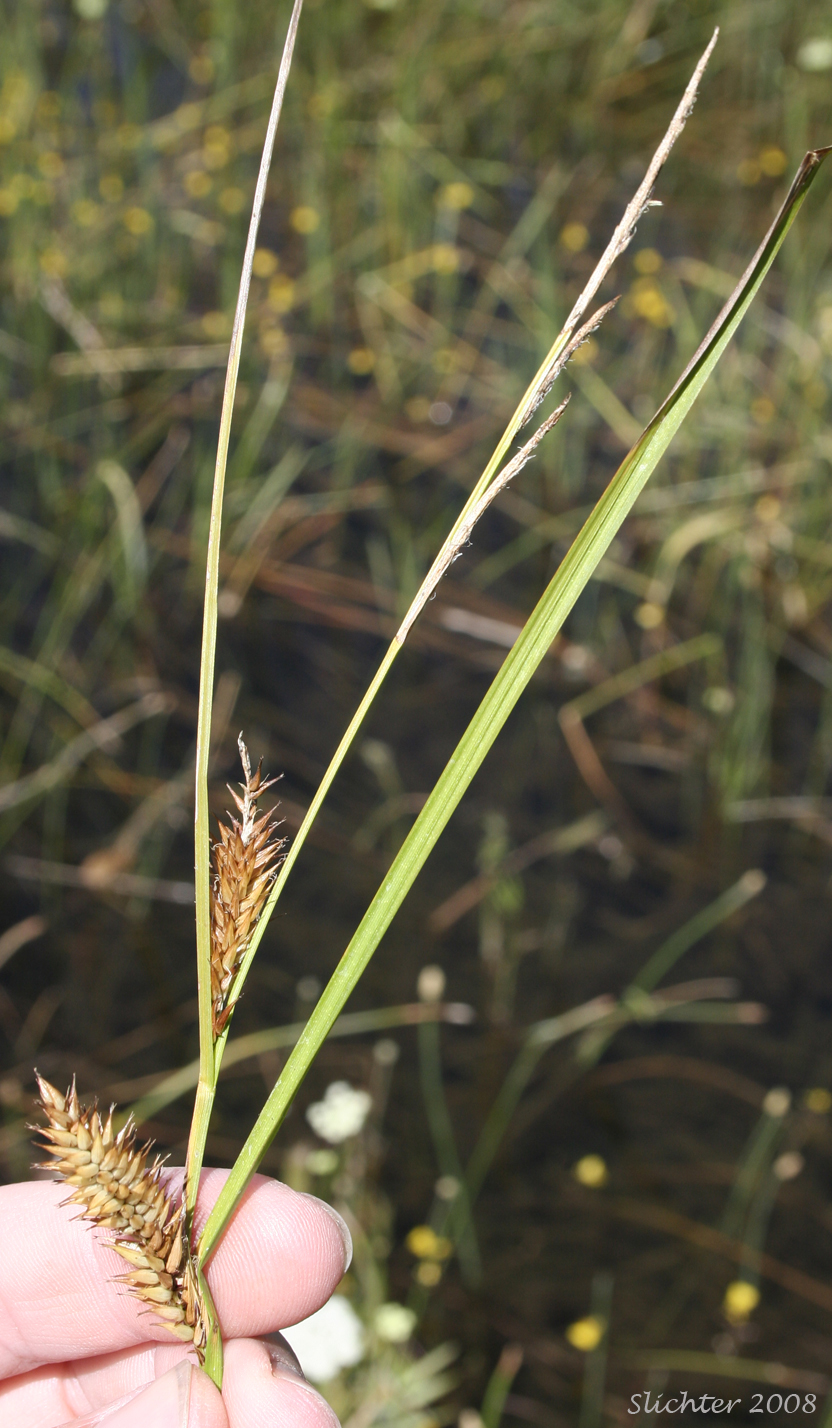
The photo above shows a close-up of the inflorescence of inflated sedge. Photographed along Kreps Lane in Conboy Lake NWR........July 31, 2008.
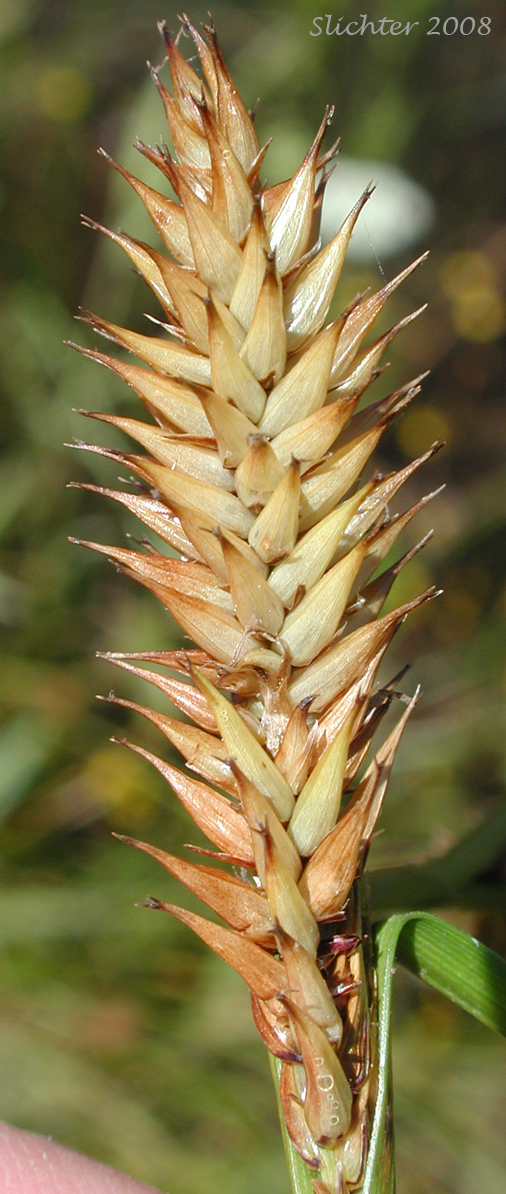 -
- 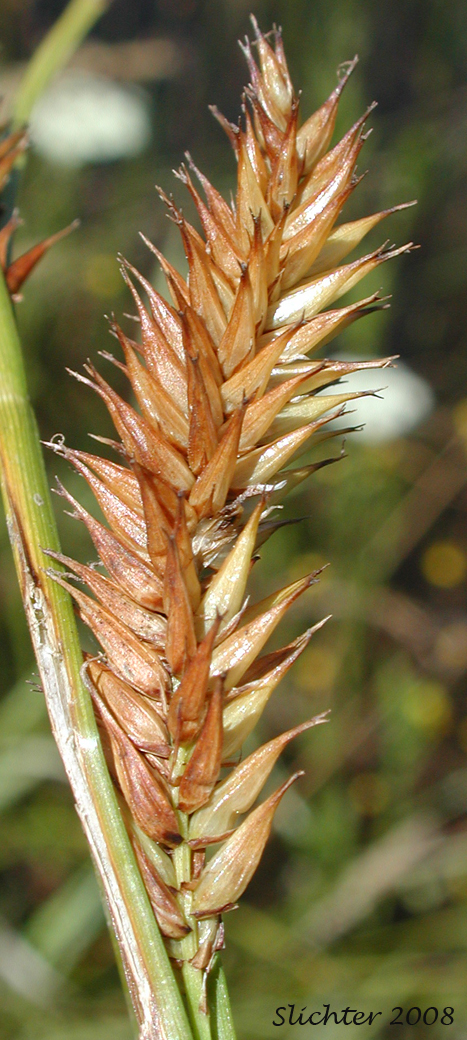
The 2 photos shown above show close-ups of the female spikelets of inflated sedge. Photographed along Kreps Lane in Conboy Lake NWR.......July 31, 2008.
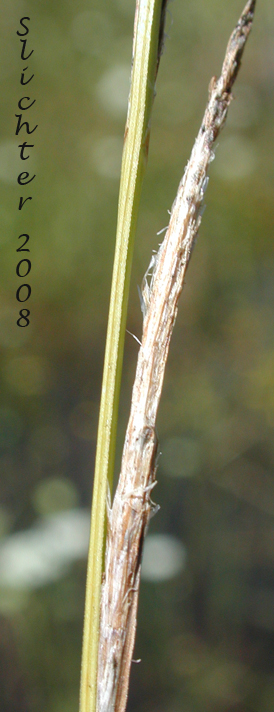
The photo above shows the terminal male inflorescence of inflated sedge. Photographed along Kreps Lane in Conboy Lake NWR.........July 31, 2008.
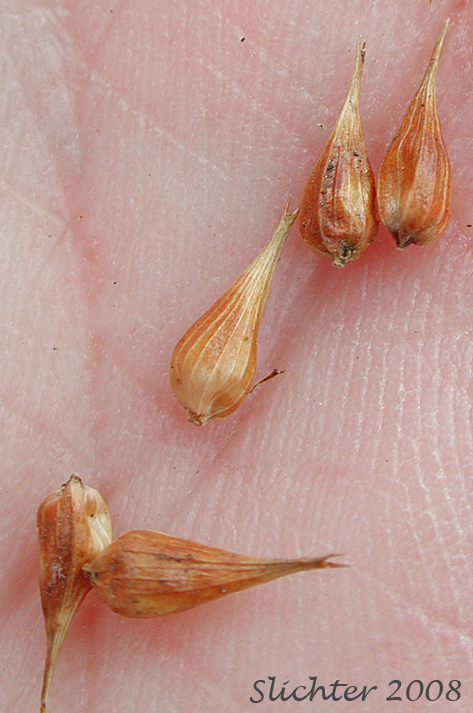 -
- 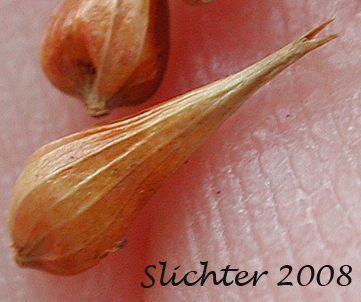
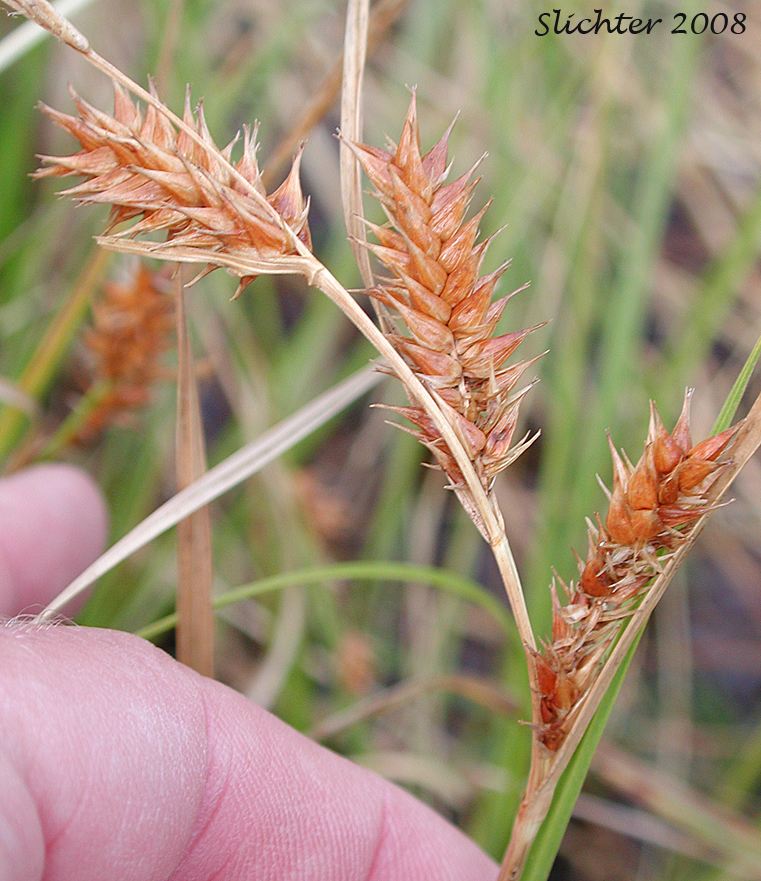 -
- 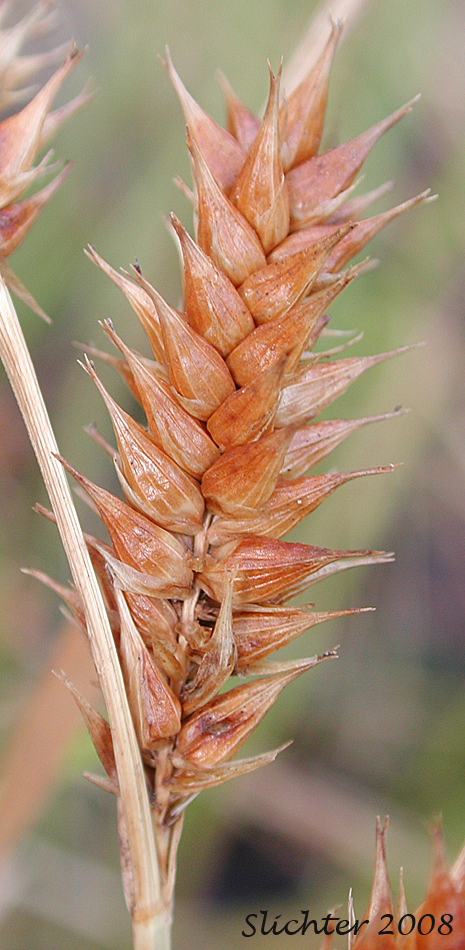
The 4 photos shown above show close-up details of the perigynia and spikelets of blister sedge as seen along Laurel Road in Conboy Lake NWR.........August 11, 2008.
 -
- 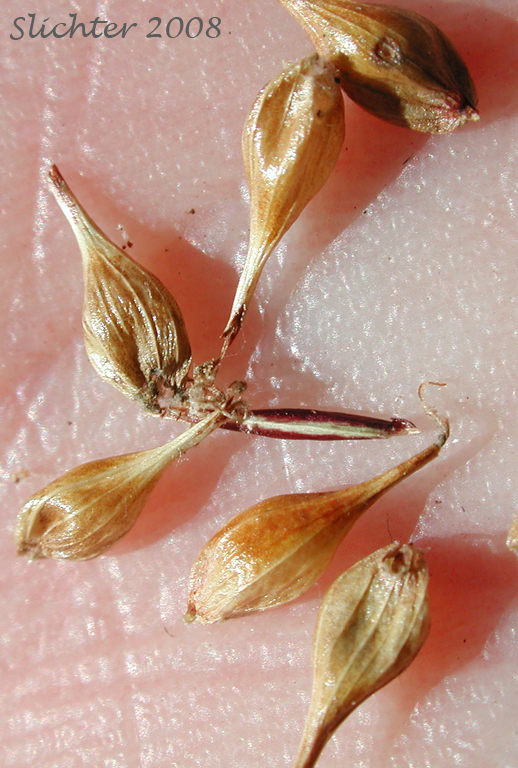 -
- 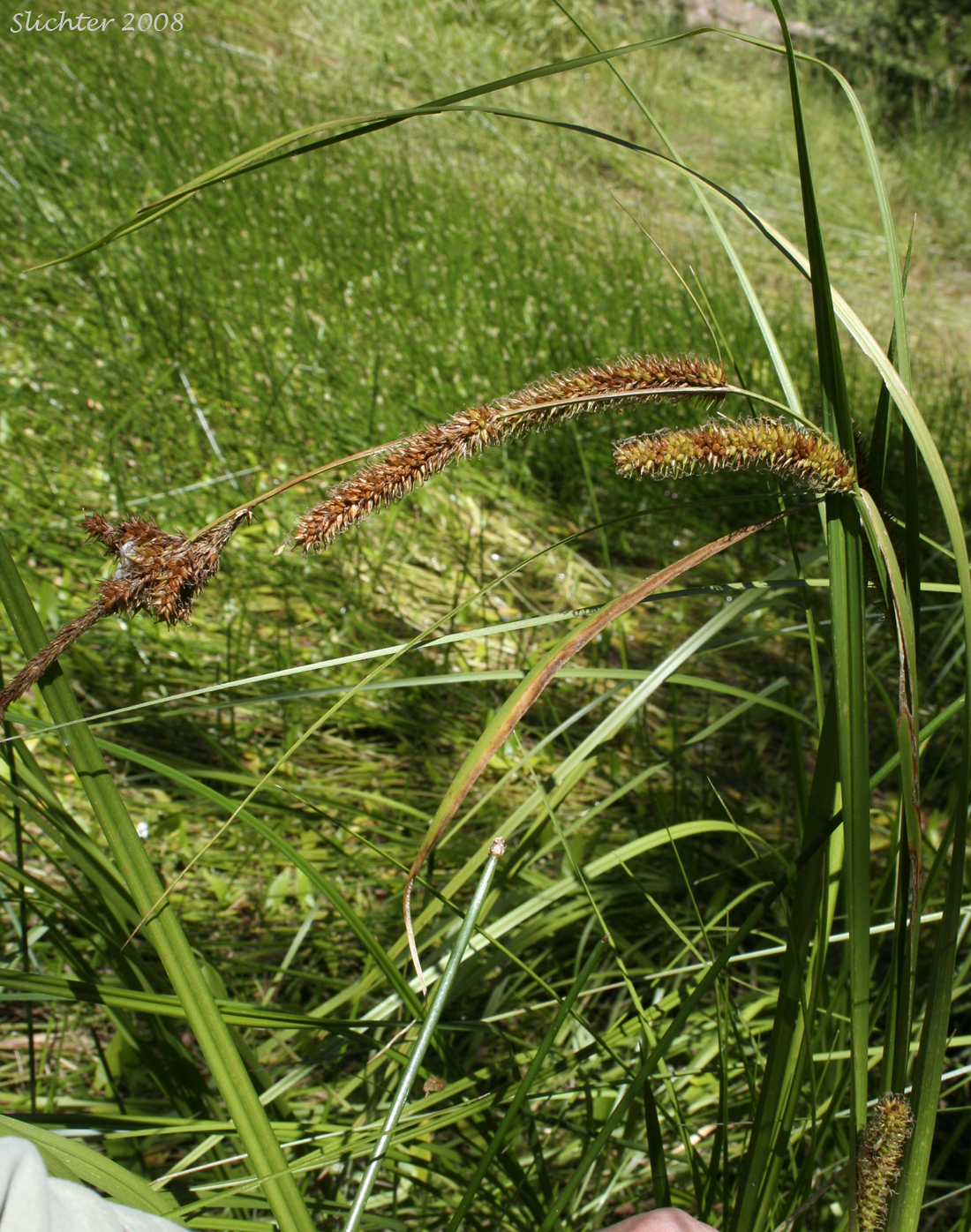
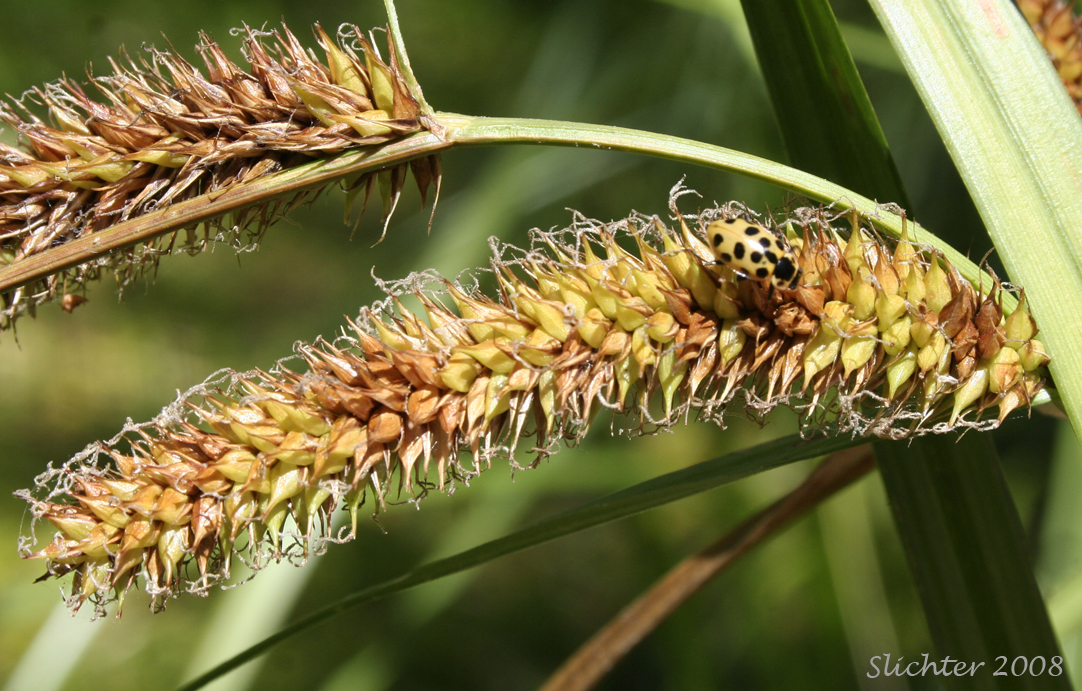 -
- 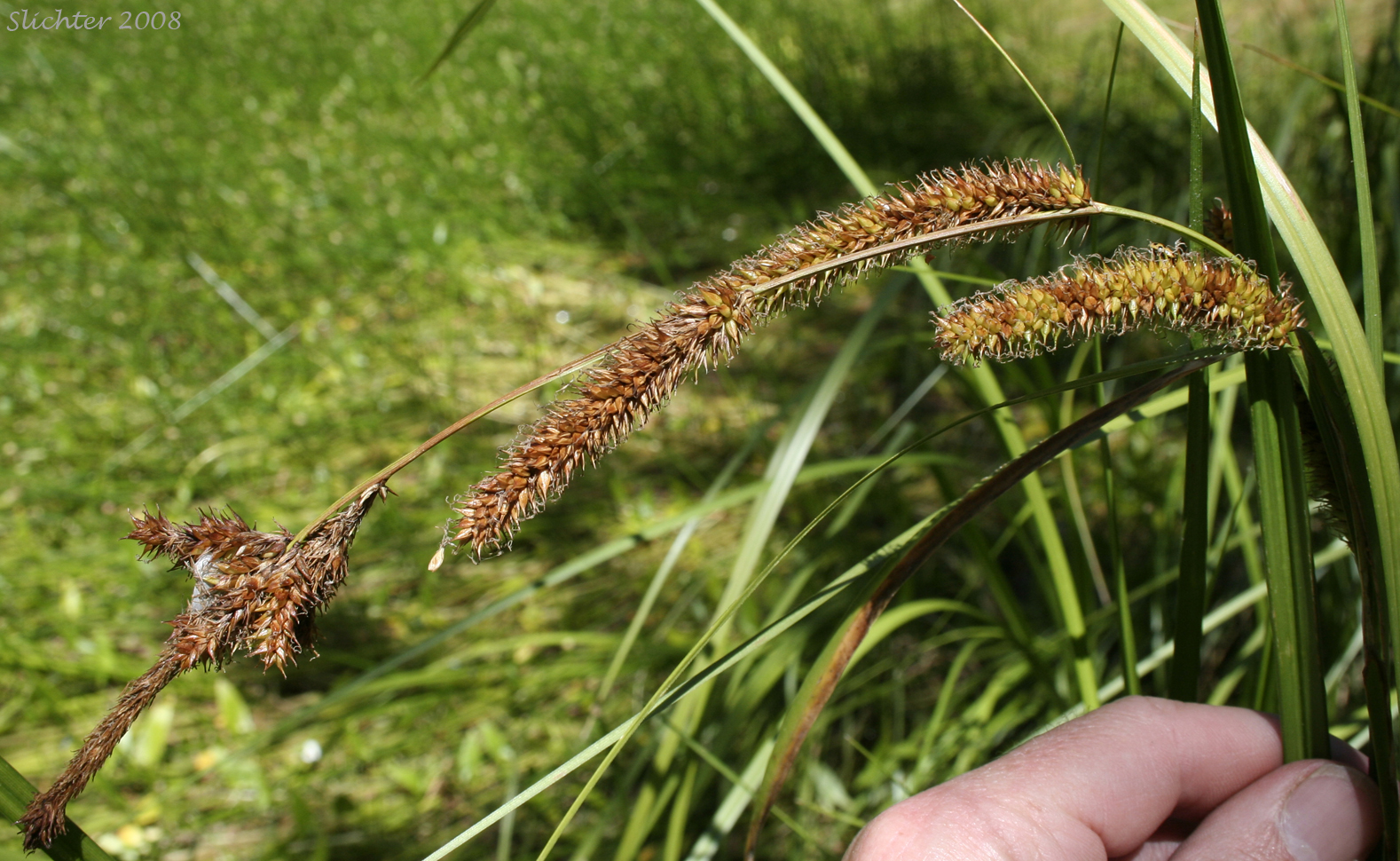

These 6 photos show close-ups of what may be blister sedge as seen in wetlands along Forest Road K1000 to the west of the Mt. Adams Highway...........August 11, 2008. If this is indeed blister sedge, it is not a typical specimen. The spikes measure up to 10 cm long on a plant up to a meter and higher in height.
Paul Slichter
